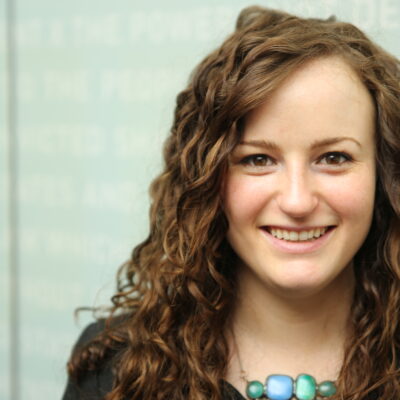When I read about Proposition 36, I immediately thought “inflammable.” Why? Because Prop 36 and the word “inflammable” both look like they mean the opposite of what they do.
“Inaccurate” means not accurate. “Ineffective” means not effective. But inflammable doesn’t mean not flammable; it means dangerously apt to burn.
Prop 36—the “Homelessness, Drug Addiction, and Theft Reduction Act”—is an inaccurate, ineffective sham that would only worsen the issues it purports to alleviate. It’s a measure that would set flames to the very things that keep us safe.
Prop 36 seeks to roll back much of Prop 47, a successful 2014 criminal legal system reform measure that turned some nonviolent felonies into misdemeanors. Backers of Prop 36 want you to believe Prop 47 is responsible for houselessness, drug addiction and theft, but that’s just not the case. Multiple reports demonstrate that Prop 47 did not cause any uptick in crime. In fact, Prop 47—by all measures—reduces incarceration without increasing crime, decreases recidivism, and delivers around 100 million dollars in annual funding for services proven to help people with addiction issues, alleviate houselessness, and reduce crime.
Despite Prop 47’s resounding success, proponents of Prop 36 seek to reduce to ashes all of its progress and force California back to the days of more incarceration, sky-high recidivism rates, and fewer services for people struggling.
Here’s just some of the penalties Prop 36 would do.
Prop 36 would create new (and resurrect old) sentencing enhancements, requiring judges to add extra years of prison to someone’s sentence despite how study after study show that longer sentences do not deter crime and that just one day in jail is so destabilizing it increases the likelihood of re-arrest.
Prop 36 would also allow a prosecutor to charge a third instance of petty shoplifting as a felony. This means someone could steal shampoo twice, get sentenced to up to a year in jail each time, and on their third stolen bottle, get a three-year sentence and a felony conviction with all the consequences that brings, including limited access to housing, education, and jobs.
Prop 36 would create “treatment-mandated” felony charges for simple drug possession, without providing any funding for treatment. If a person is unable to successfully complete mandated treatment, they will not only have a felony conviction, they will also face up to three years in jail or prison. We know mandated treatment doesn’t account for how relapse is part of the recovery process and shouldn’t be punished. We also know people impacted by incarceration are 10 times more likely to have a drug overdose than the general population. Californians for Safety and Justice estimates Prop 36 would send over 50,000 people to prison and jail for drugs. What does work? A well-resourced continuum of care in the community rather than incarceration.
So, if we don’t need Prop 36, what do we need?
We need more resources. What people are seeing when they feel unsafe—be it houselessness, drug addiction, or stories about theft—is not a result of Prop 47; it’s a result of lack of services and a historic lack of investment in the resources that keep communities safe. Our counties overspend on law enforcement and send dust and crumbs to the community-based services that keep communities safe and healthy. In Los Angeles County last year, the Board of Supervisors spent 36 times more general fund dollars on the sheriff’s department than on houselessness services, despite research showing “that investing in the upstream drivers of safety risks (like housing, education, and economic security) is more effective than doubling-down on criminalization” Prop 47 provides crucial funding for services that we need more of, not less. Prop 36 could eliminate these funds altogether. In a 2022 report from the California Department of Health Care Services, “70% of California’s 58 counties said they urgently needed residential treatment services at all levels of care, and 22 counties reported not having any residential treatment facilities at all.”
The solution to houselessness, addiction, and theft is not to return to a failed mass incarceration experiment hoping it will magically produce different results than before. How will that reduce houselessness? Especially when 1/5 of unhoused Californians became houseless right after leaving jail or prison and people incarcerated more than once are thirteen times more likely to become houseless? How will that reduce drug addiction when studies and experience show imprisoning people doesn’t reduce drug use? Or decrease theft when “smash and grab” robberies are up around the country, including in states that lack Prop 47-type reforms and when California already has ample tools to address theft?
Please don’t fall for the scam. Californians deserve to feel safe and to live in safe, healthy communities. Don’t let Prop 36 burn down the programs proven to help people stay on track.
Join Governor Newsom, the California Democratic Party, the Los Angeles Board of Supervisors, the California Nurses Association, the California Teachers Association, the National Union of Healthcare Workers, Disability Rights California, SEIU, ACLU SoCal, and many others and please VOTE NO on Prop 36.
Read more on why the ACLU SoCal votes NO on Prop 36 and see our full ballot guide.

